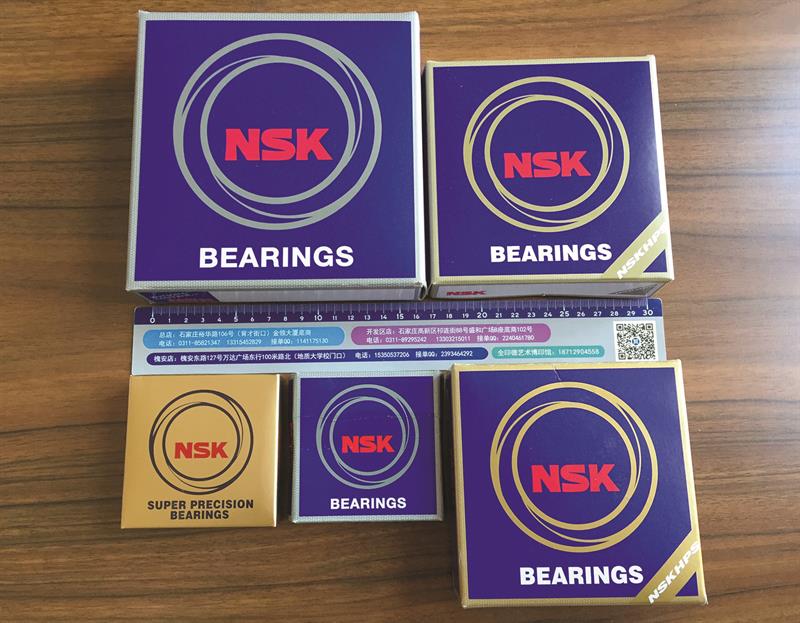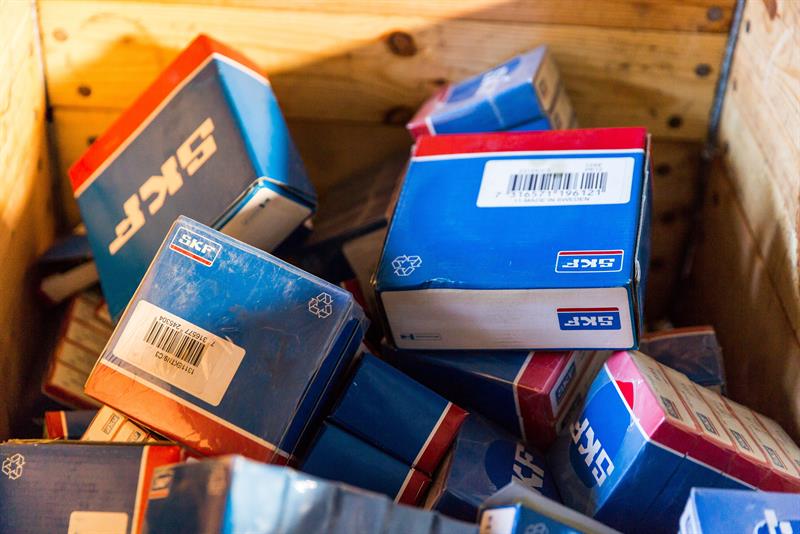First of all, it is relatively cheap and simple to produce a superficially convincing facsimile of a proprietary bearing. As a consequence, there is no shortage of producers out there – in China especially – ready to meet demand. So why does that demand exist? Partly because bearings are needed in such numbers throughout engineering and because the real thing does not come cheap. To someone seeking much-needed cost savings on a project, a chance to cut expenditure can be all too tempting.
It almost goes without saying that such apparent savings present significant risks to the user. Safety is the number one reason for buying a genuine bearing. While counterfeiters may be good copycat manufacturers, their ability to reproduce the advanced metal technologies, lubrication and finishes in genuine bearings is minimal.
The problem, of course, is that by their nature, bearings are safety-critical components and their failure can result in catastrophic failure throughout the mechanism into which they are incorporated. A faulty bearing can have devastating consequences. In a pumping station, severe flooding could cost people’s lives and ruin ecosystems; or in the utilities sector, outages can create hazardous environments and costs to the economy. In transport, a faulty bearing can cause havoc on the rail network, motorways, or at its worst, bring down an aircraft.
It would be nice to imagine that this was a minor problem, but the facts suggest otherwise. According to a study published by the ICC (International Chamber of Commerce), the annual economic and social costs resulting from this amounts to $1.7 billion worldwide. Indeed, counterfeiting is widely considered to be the single biggest limiting factor on the growth of the bearings market.
None of the major manufacturers is immune. Recent examples include the seizure of counterfeit NSK packaging and labels in Hebei Province, China. More than 23,000 fake boxes and cartons, which were subsequently confiscated pending further investigation and potential prosecution, were discovered in Linxi County, Xintai City.

The challenge of catching counterfeiters, especially in countries like China, is a time-intensive, high-cost exercise. However, NSK continues undeterred in its relentless pursuit of these disingenuous operations. The latest success in Hebei arrived with the assistance of an investigator and Chinese government officials. Contained within the counterfeit store was a large quantity of fake, premium-brand bearing packaging, located either on shelves, piled inside woven bags or simply stacked on the floor. Furthermore, inkjet printers and people producing counterfeit cartons were found on site. When questioned about the seized bearing packages, the owner of the business admitted that all were fake.
Far from being limited to China, the problem is global. In June, Interpol seized more than 6,000 SKF-branded counterfeit products, including bearings, seals and lubrication systems.
Speaking to the press at Interpol offices, the brand protection manager of SKF Petter Ronnborg, said: “SKF uses the right quantity and materials to produce the best products and that is why SKF is here to fight those people who manufacture fake products and pass them off as SKF.”

Benson Oyo Nyeko, the director of Interpol and International Affairs, said the officials also impounded counterfeit industrial bearings, tins of grease and other lubricants among other fake items. “Counterfeiting is a serious problem affecting our nation and the economy as a whole. Imagine we seized a sizeable amount of goods in a small area of Kampala but there is a huge amount of these goods in open market,” he said.
ACN director for legal and corporate affairs, Fred Muwema, said the arrested persons are facing charges which include counterfeiting a trademark, falsely applying a trademark, manufacture and possession of dye as well as prohibition of import and export of infringing trademark goods.
Muwema said counterfeit goods constitute up to 70% of the goods on the Ugandan market due to the weakness in the legal framework.
“Dealing in counterfeits is counterproductive and criminal for it affects the economy’s tax revenue but most significantly peoples’ lives are at risk. We lose at least 10 people every day due to motor accidents because of vehicles that fail to break due to fake bearings,” he said.
So, what is the best possible defence against the incorporation of fake bearings into your production? The advice offered by the World Bearing Association (WBA) is simple: only use trusted, authorised suppliers. Another – perhaps obvious – piece of advice is to be suitably wary of any heavily-discounted products that are offered. After all, if something seems too good to be true, it probably is!
Naturally, this problem extends to the Schaeffler Group, too. Indeed, in 2016, a total of 182 seizures worldwide were made due to trademark violations suffered by the Schaeffler Group. 5,675,812 counterfeit parts were confiscated during these raids. Furthermore, in March 2017, an importer in Turkey was imprisoned and counterfeit rolling bearings with a nominal value of €250,000 were destroyed after customs officials suspected FAG-branded bearings might not be genuine and sent photographs to Schaeffler’s Brand Protection Team, who then took a look into it.
Schaeffler’s response has come in the form of its OriginCheck app, which provides end customers, distributors and authorities with an easy method of clarification. If checks lead the user to suspect that a product may be counterfeit, he or she can use the app to take additional steps.
Checks are carried out based on the traceable data matrix codes (DMC) on Schaeffler packaging. These two-dimensional codes contain various types of information in a machine-readable form and allow the relevant product to be identified worldwide. 90% of products that are supplied by Schaeffler today already feature a DMC on the packaging.
The user scans this DMC with the OriginCheck app and immediately receives notification of whether the code is in the Schaeffler database. If one of these Schaeffler codes is authentic but has already been scanned multiple times, the user then receives a warning based on a defined set of criteria. If this is the case or if the code’s authenticity is clearly not confirmed, the app can be used to create suitable photographic documentation of the product being checked.
Further info More information about the fake bearings industry can be found at www.stopfakebearings.com, which is a WBA website that serves as both an awareness and educational platform, helping bearing users to become more informed consumers. The site stresses the importance of only dealing with authorised and trusted sources. |





